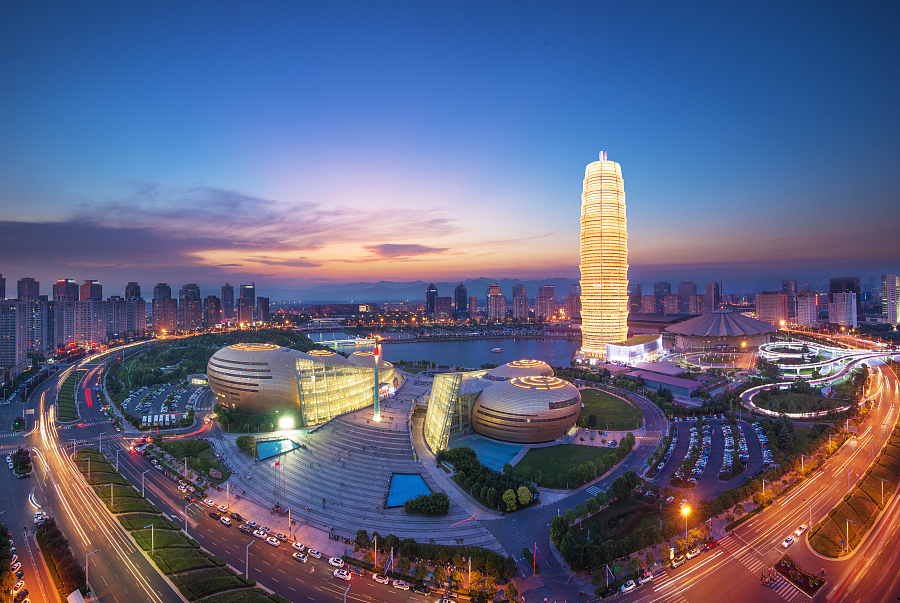China's success in clean energy inspires Poland
By Chen Jia in Krynica, Poland | China Daily | Updated: 2018-10-11 10:20

Liu Hong, an official in what was one of China's most polluted regions three years ago, did not expect to be introducing foreign business leaders the city's success story in improving air quality.
After a flight across six time zones to Poland, Liu, deputy director of the Foreign and Overseas Chinese Affairs Office in Zhengzhou, Henan province, was invited to a series of meetings with entrepreneurs from Central and Eastern Europe, a region known as the CEE.
He was asked to discuss the measures Zhengzhou took to tackle air pollution, as some cities in the CEE, such as Warsaw in Poland, face similar environmental issues.
"The promotion of clean energy usage has been the key to improving air quality in recent years," Liu said.
According to Liu, Zhengzhou has taken measures to control traditional energy consumption such as coal - the area's major source of PM2.5 particulate matter - and to promote the use of clean energy.
Since 2016, the city has reduced coal consumption by 3.72 million metric tons, reducing coal consumption as a proportion of total energy consumption to below 63 percent, Liu said.
Motor vehicle exhaust fumes, the second-highest cause of air pollution in Zhengzhou, have also been controlled through accelerating the elimination of "yellow-label" vehicles, which fall below certain emission standards, and actively promoting new energy vehicles.
In the past two years, the city has invested 2.68 billion yuan ($389 million) and purchased 1,868 new energy buses.
Zhengzhou Yutong Bus Co Ltd, a leading producer of new energy automobiles, is one example Liu outlined.
"The company's new energy buses can effectively reduce 2.42 million tons of carbon dioxide emissions per year, equivalent to the annual carbon dioxide absorption of 2,000 hectares of broad-leaved forest."
Yutong is just one among many explorers and innovators in China's new energy sector. The company launched the National Research Center on Electronic Control and Safety Engineering Technology of Electric Buses, China's first technical center for new energy buses. It has the largest new energy bus manufacturing base in China and was also the first company worldwide to complete the trial operation of an unmanned bus.
"We have communicated with Chinese enterprises, including Yutong, and they have successful experiences in developing new and clean energy," said Marcin Roszkowski, president of the Jagiellonian Institute in Poland.
"Under the Paris Agreement on climate change, China has made a notable pledge to reduce emissions by 2023. We are trying to find proper methods and to implement China's example in Poland," he said.
Poland's economic and industrial development still relies significantly on coal, which accounts for about 80 percent of its energy consumption. The government listed accelerating the restructuring of its energy industry as one of its key tasks.
In addition, local enterprises are under pressure to adapt to the European Union's higher standards on carbon dioxide emissions. Using liquefied natural gas and other alternative fuels could be a way to improve air quality in Poland.
In the face of increasing tension over energy and resources, continuously severe air pollution and stricter emissions laws, the development of new energy buses has become an inevitable choice for the global transportation industry, said Pawel Jakubowski, CEO of Polskie LNG, the operator of an LNG terminal in Poland.
"We are looking forward to cooperating with Chinese companies to co-develop new energy products and to promote the restructuring of Poland's energy consumption," he said.
The Paris Agreement, signed in December 2015, offers a pragmatic blueprint for resolving one of the toughest issues society faces: air quality. The aim of the agreement is to limit the growth in the global average temperature to well below 2 degrees Celsius above the pre-industrial level.
























